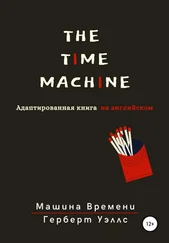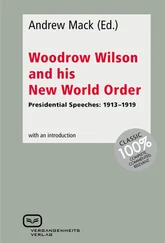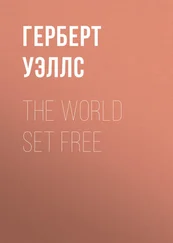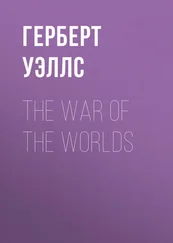Герберт Уэллс - The New World Order
Здесь есть возможность читать онлайн «Герберт Уэллс - The New World Order» весь текст электронной книги совершенно бесплатно (целиком полную версию без сокращений). В некоторых случаях можно слушать аудио, скачать через торрент в формате fb2 и присутствует краткое содержание. Год выпуска: 1940, Жанр: Политика, Публицистика, на английском языке. Описание произведения, (предисловие) а так же отзывы посетителей доступны на портале библиотеки ЛибКат.
- Название:The New World Order
- Автор:
- Жанр:
- Год:1940
- ISBN:нет данных
- Рейтинг книги:4 / 5. Голосов: 1
-
Избранное:Добавить в избранное
- Отзывы:
-
Ваша оценка:
- 80
- 1
- 2
- 3
- 4
- 5
The New World Order: краткое содержание, описание и аннотация
Предлагаем к чтению аннотацию, описание, краткое содержание или предисловие (зависит от того, что написал сам автор книги «The New World Order»). Если вы не нашли необходимую информацию о книге — напишите в комментариях, мы постараемся отыскать её.
The New World Order — читать онлайн бесплатно полную книгу (весь текст) целиком
Ниже представлен текст книги, разбитый по страницам. Система сохранения места последней прочитанной страницы, позволяет с удобством читать онлайн бесплатно книгу «The New World Order», без необходимости каждый раз заново искать на чём Вы остановились. Поставьте закладку, и сможете в любой момент перейти на страницу, на которой закончили чтение.
Интервал:
Закладка:
But a Revolution need be neither an explosion nor a coup d'état. And the Revolution that lies before us now as the only hopeful alternative to chaos, either directly or after an interlude of world communism, is to be attained, if it is attained at all, by neither of these methods. The first is too rhetorical and chaotic and leads simply to a Champion and tyranny; the second is too conspiratorial and leads through an obscure struggle of masterful personalities to a similar end. Neither is lucid enough and deliberate enough to achieve a permanent change in the form and texture of human affairs.
An altogether different type of Revolution may or may not be possible. No one can say that it is possible unless it is tried, but one can say with some assurance that unless it can be achieved the outlook for mankind for many generations at least is hopeless. The new Revolution aims essentially at a change in directive ideas. In its completeness it is an untried method.
It depends for its success upon whether a sufficient number of minds can be brought to realise that the choice before us now is NOT a choice between further revolution or more or less reactionary conservatism, but a choice between so carrying on and so organising the process of change in our affairs as to produce a new world order, or suffering an entire and perhaps irreparable social collapse. Our argument throughout has been that things have gone too far ever to be put back again to any similitude of what they have been. We can no more dream of remaining where we are than think of going back in the middle of a dive. We must go through with these present changes, adapt ourselves to them, adjust ourselves to the plunge, or be destroyed by them. We must go through with these changes just as we must go through this ill-conceived war, because there is as yet no possible end for it.
There will be no possible way of ending it until the new Revolution defines itself. If it is patched up now without a clear-headed settlement understood and accepted throughout the world, we shall have only the simulacrum of a peace. A patched-up peace now will not even save us from the horrors of war, it will postpone them only to aggravate them in a few years time. You cannot end this war yet, you can at best adjourn it.
The reorganisation of the world has at first to be mainly the work of a "movement" or a Party or a religion or cult, whatever we choose to call it. We may call it the New Liberalism or the New Radicalism or what not. It will not be a close-knit organisation, toeing the Party line and so forth. It may be a very loose-knit and many faceted, but if a sufficient number of minds throughout the world, irrespective of race, origin or economic and social habituations, can be brought to the free and candid recognition of the essentials of the human problem, then their effective collaboration in a conscious, explicit and open effort to reconstruct human society will ensue.
And to begin with they will do all they can to spread and perfect this conception of a new world order, which they will regard as the only working frame for their activities, while at the same time they will set themselves to discover and associate with themselves, everyone, everywhere, who is intellectually able to grasp the same broad ideas and morally disposed to realise them.
The distribution of this essential conception one may call propaganda, but in reality it is education. The opening phase of this new type of Revolution must involve therefore a campaign for re-invigorated and modernised education throughout the world, an education that will have the same ratio to the education of a couple of hundred years ago, as the electric lighting of a contemporary city has to the chandeliers and oil lamps of the same period. On its present mental levels humanity can do no better than what it is doing now.
Vitalising education is only possible when it is under the influence of people who are themselves learning. It is inseparable from the modern idea of education that it should be knit up to incessant research. We say research rather than science. It is the better word because it is free from any suggestion of that finality which means dogmatism and death.
All education tends to become stylistic and sterile unless it is kept in close touch with experimental verification and practical work, and consequently this new movement of revolutionary initiative, must at the same time be sustaining realistic political and social activities and working steadily for the collectivisation of governments and economic life. The intellectual movement will be only the initiatory and correlating part of the new revolutionary drive. These practical activities must be various. Everyone engaged in them must be thinking for himself and not waiting for orders. The only dictatorship he will recognise is the dictatorship of the plain understanding and the invincible fact.
And if this culminating Revolution is to be accomplished, then the participation of every conceivable sort of human being who has the mental grasp to see these broad realities of the world situation and the moral quality to do something about it, must be welcomed.
Previous revolutionary thrusts have been vitiated by bad psychology. They have given great play to the gratification of the inferiority complexes that arise out of class disadvantages. It is no doubt very unjust that anyone should be better educated, healthier and less fearful of the world than anyone else, but that is no reason why the new Revolution should not make the fullest use of the health, education, vigour and courage of the fortunate. The Revolution we are contemplating will aim at abolishing the bitterness of frustration. But certainly it will do nothing to avenge it. Nothing whatever. Let the dead past punish its dead.
It is one of the most vicious streaks in the Marxist teaching to suggest that all people of wealth and capacity living in a community in which unco-ordinated private enterprise plays a large part are necessarily demoralised by the advantages they enjoy and that they must be dispossessed by the worker and the peasant, who are presented as endowed with a collective virtue capable of running all the complex machinery of a modern community. But the staring truth of the matter is that an unco-ordinated scramble between individuals and nations alike, demoralises all concerned. Everyone is corrupted, the filching tramp by the roadside, the servile hand-kissing peasant of Eastern Europe, the dole-bribed loafer, as much as the woman who marries for money, the company promoter, the industrial organiser, the rent-exacting landlord and the diplomatic agent. When the social atmosphere is tainted everybody is ill.
Wealth, personal freedom and education, may and do produce wasters and oppressive people, but they may also release creative and administrative minds to opportunity. The history of science and invention before the nineteenth century confirms this. On the whole if we are to assume there is anything good in humanity at all, it is more reasonable to expect it to appear when there is most opportunity.
And in further confutation of the Marxist caricature of human motives, we have the very considerable number of young people drawn from middle-class and upper-class homes, who figure in the extreme left movement everywhere. It is their moral reaction to the "stuffiness" and social ineffectiveness of their parents and their own sort of people. They seek an outlet for their abilities that is not gainful but serviceable. Many have sought an honourable life-and often found it, and death with it-in the struggle against the Catholics and their Moorish and Fascist helpers in Spain.
It is a misfortune of their generation that so many of them have fallen into the mental traps of Marxism. It has been my absurd experience to encounter noisy meetings of expensive young men at Oxford, not one of them stunted physically as I was by twenty years of under-nourishment and devitalised upbringing, all pretending to be rough-hewn collarless proletarians in shocked revolt against my bourgeois tyranny and the modest comfort of my declining years, and reciting the ridiculous class-war phrases by which they protected their minds from any recognition of the realities of the case. But though that attitude demonstrates the unstimulating education of their preparatory and public schools, which had thrown them thus uncritical and emotional into the problems of the undergraduate life, it does not detract from the fact that THEY HAD FOUND THE IDEA OF ABANDONING THEMSELVES TO A REVOLUTIONARY RECONSTRUCTION OF SOCIETY, that promised to end its enormous waste of potential happiness and achievement, EXTREMELY ATTRACTIVE, notwithstanding that their own advantages seemed to be reasonably secure.
Читать дальшеИнтервал:
Закладка:
Похожие книги на «The New World Order»
Представляем Вашему вниманию похожие книги на «The New World Order» списком для выбора. Мы отобрали схожую по названию и смыслу литературу в надежде предоставить читателям больше вариантов отыскать новые, интересные, ещё непрочитанные произведения.
Обсуждение, отзывы о книге «The New World Order» и просто собственные мнения читателей. Оставьте ваши комментарии, напишите, что Вы думаете о произведении, его смысле или главных героях. Укажите что конкретно понравилось, а что нет, и почему Вы так считаете.
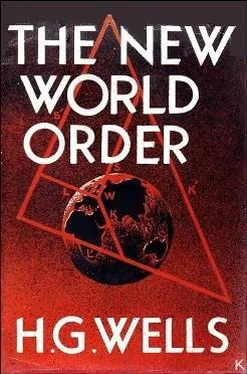
![Герберт Уэллс - The War of the Worlds [С англо-русским словарем]](/books/26611/gerbert-uells-the-war-of-the-worlds-s-anglo-thumb.webp)

